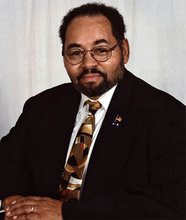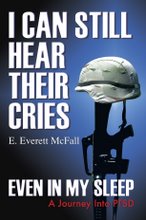A PEACE WITHIN
by TK Rosevear
January 09, 2008 04:38 PM EST
Initially, the intentions of this article were simply to lead into a book review for one of our own here on Gather.com that I had the privilege of reading. E. Everett Mc Fall wrote a poetic journey and brief narrative about his own struggles with the 'demons' of PTSD, from his military experience in Vietnam.
As I began researching further, I have to say that if I were questioned by a psychologist today, I would most likely be diagnosed with some type of anxiety disorder, quite simply from my distressing findings. Please note that if you are currently taking any of the below mentioned medications for the diagnosis discussed or something else, it would be in your best healthy interests to discuss it with your doctor ? seriously.
PTSD defined
Post Traumatic Stress Disorder (PTSD) is defined clinically in the Merck Manual (the world's most widely used medical reference) as an anxiety disorder caused by the exposure to an overwhelming traumatic event, in which the person later repeatedly reexperiences the event. These experiences are considered to threaten death or serious injury that can affect people long after the actual occurrence has been experienced; an intense fear, helplessness, or horror that can haunt a person's beliefs, thoughts and behaviors negatively.
Traumatic events may involve having been threatened with death or serious injury or witnessing violence against another person. Clinical examples include engaging in military combat, experiencing or witnessing sexual or physical assault, or being affected by a disaster, either natural or man-made. A delayed onset of PTSD symptoms may take months, years, and even decades to appear. A diagnosis of concurrent symptoms for 3 months consecutively is considered as a chronic affliction with PTSD. This manual also concludes that this disorder affects at least 8% of the people at sometime during their life with the symptoms of re-experiencing repeatedly, usually in nightmares or flashbacks. (1)
In lieu of 9/11 events, in 2001, I would venture to say those percentages have risen considerably. The Merck manual continues its definition of symptoms to PTSD, as an intense distress that often occurs when the person is 'triggered' or exposed to an event, situation, even conversation. Even with persistently avoiding things and people that may remind us of the trauma. We will attempt to avoid thoughts, feelings/emotions, and talking about the traumatic event, also trying to avoid situations or people who serve as reminders.
Avoidance may lead to amnesia and/or a numbing or deadening of emotional responsiveness, as well as the tendency to being overly sensitized to relaxation or stimulation (difficult to fall asleep/easily startled). They go on to say that symptoms of depression are also common, as is losing interest in previously enjoyed activities. Feelings of guilt, whether "survivor's guilt", 'why me' guilt, or the guilt associated with being deserving of the trauma. (1)
The most common treatment for PTSD is drug therapy, like Selective Serotonin Reuptake Inhibitors (SSRI's), Tricylic Antidepressants, and Monoamine Oxidase Inhibitors (MAOI's), to be accompanied by psychotherapy and counseling. (1)
Psychologists and sleep experts still debate and disagree whether dreams/nightmares reflect emotional turbulence, though they continue to insist that brain waves are activities the sleeping brain randomly choreographs into a plot. While others argue to seeing the repressed fears, desires, symbolic solutions, even ancient archetypal patterns.
Nightmares are considered like anxiety attacks while dreaming with the side effects of losing sleep, raising blood pressure and heart rate and other 'fight or flight' responses. Sleep terrors are not dreaming nightmares, it is more akin to sleep walking as these both occur in the deep stages of nondream sleep and the person usually doesn't awaken and can even be difficult to rouse. Night sweats are emotions and stresses carried to bed, quite common with sleep disorders like sleepwalking, nightmares, apnea and insomnia.
The rising pulse, blood pressure, body temperature and adrenaline levels prior to bedtime with food, spices, alcohol, television and tobacco, can literally guarantee igniting night sweats later. (2)
-------------------------------------------->
NATIONAL SUICIDE HOTLINE
1-800-273- TALK (8255)
-------------------------------------------->
Wednesday, January 9, 2008
Subscribe to:
Post Comments (Atom)







No comments:
Post a Comment